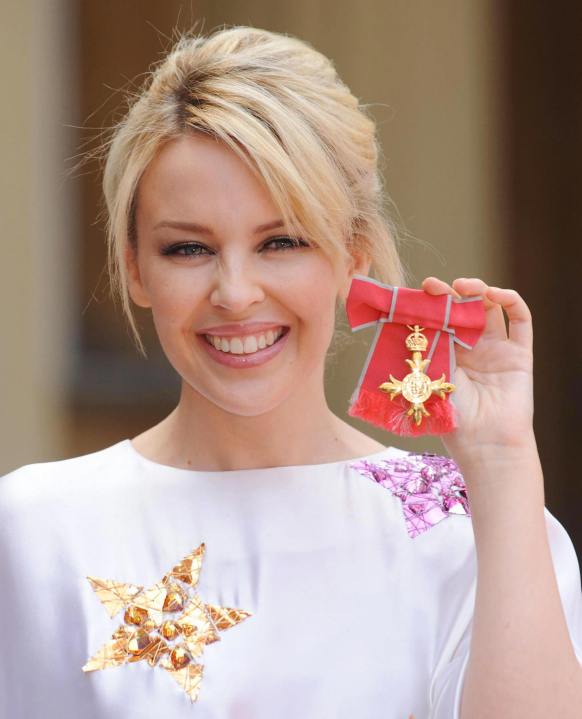 Does Kylie Minogue deserve an OBE? News of her honour has irked the usual suspects, perhaps because they are not up to date with her career and cultural achievement. Virgin Radio was once caught out in this way. It launched in 1994 with a a daft slogan “we’ve improved Kylie’s songs – we’ve banned them.” The joke was on them. Kylie had just signed with Deconstruction and was back with “Confide in Me” which hailed the first of her many reinventions. She had moved out of her (still genre-defining) Stock, Aitken & Waterman phase and become the woman whose ouevre is now being honoured. But how to sum her up?
Does Kylie Minogue deserve an OBE? News of her honour has irked the usual suspects, perhaps because they are not up to date with her career and cultural achievement. Virgin Radio was once caught out in this way. It launched in 1994 with a a daft slogan “we’ve improved Kylie’s songs – we’ve banned them.” The joke was on them. Kylie had just signed with Deconstruction and was back with “Confide in Me” which hailed the first of her many reinventions. She had moved out of her (still genre-defining) Stock, Aitken & Waterman phase and become the woman whose ouevre is now being honoured. But how to sum her up?
Musical versatility would be one trait. Refusal to be po-faced is another. When she read out “I should be so lucky” in a surprise show the Poetry Olympics in the Royal Albert Hall, she was sending herself up. “Everyone knew she that she was fun and nice and girl-next doorish,” said the Welsh actress Nerys Hughes, who was in the audience. “But what she did was to have irony. Without guile, without hardness.” Her post-Stock Aitken and Waterman career was just beginning. It brought her into a duet with Nick Cave, Where the Wild Roses Grow – a sublime, gothic and emotionally-charged masterpiece. There were plenty more to come.
Few would be so bold as to deny that “Can’t get you out of my head” – the Cathy Dennis song and the Dawn Shadforth video – was a pop masterpiece. It was reportedly turned down by Sophie Ellis-Bextor, but only Kylie could have made it what it became. The Spinning Around video (watch it below) was also a phenomenon starring not the girl but her golden hotpants. Here she was, aged 33 – more than a decade into her musical career – and it was as if the world had just discovered a certain part of her anatomy. “After those hotpants, your butt has become the butt of many conversations,” one interviewer told her. “I just have to laugh,” she replied. All the way to the bank: in no time she was launching her own underwear range with bedding and wine to come later. “There was something about her,” said Pete Waterman when he met her. “If you could bottle it, you’d be a billionaire.” She was the one who put it in a bottle (her perfume, Sexy Darling, launched earlier this year). She became the billionaire – and all after recovering from cancer and chemo. Very few artists have the smarts to manage such a transition: from music into a personal brand that launches a business empire.
Kylie is more than a chanteuse. She is a cultural touchstone – one whose innovation, hard work and inimitability has translated into much-deserved longevity. She topped the charts 20 years ago and might well still be doing so 20 years hence. But again, how to sum her up? She embodies fun, freedom, beauty, independence, empowerment – the virtues that are pursued in all free societies. All of which were targeted by the Taleban, who banned the playing of music and obsessed about how women dressed. If the Taleban stand at one end of the spectrum of liberty and oppression, then Kylie stands at the other: the non-plus ultra of what makes life worth living. It is high time that this was recognised in our honours system. All told, she has done far more to raise morale in this country far more most of those with OBE after their name. All hail.








Comments